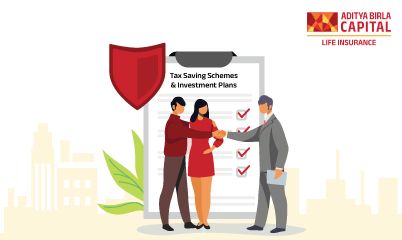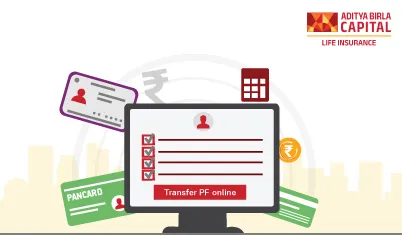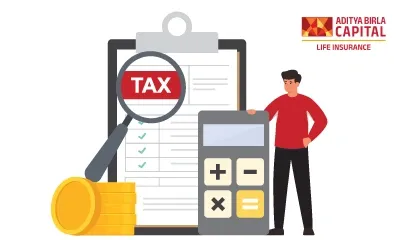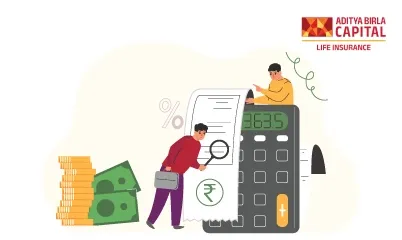Are you looking for ways to reduce your tax liability while also supporting a family member with a disability? Section 80DD of the Income Tax Act might be what you need. Let's dive into what this section is all about and how it can benefit you.
What is Section 80DD?
Section 80DD of the Income Tax Act, 1961, provides tax deductions to individuals and Hindu Undivided Families (HUFs) who have a dependent with a disability. The deduction is available for expenses incurred on the medical treatment, training, and rehabilitation of the disabled dependent, as well as for the payment of premiums for certain insurance policies covering the dependent.
The deduction is available for dependents with specified disabilities, including blindness, low vision, leprosy-cured, hearing impairment, locomotor disability, mental retardation, mental illness, autism, cerebral palsy, and multiple disabilities as defined under the Persons with Disabilities (Equal Opportunities, Protection of Rights and Full Participation) Act, 1995, and the National Trust for Welfare of Persons with Autism, Cerebral Palsy, Mental Retardation and Multiple Disabilities Act, 1999.
The amount of deduction available under Section 80DD varies depending on the severity of the disability:
-
For a disability of 40% to 80% (as certified by a medical authority), a fixed deduction of ₹75,000 is allowed.
-
For a severe disability of 80% or more, a higher fixed deduction of ₹1,25,000 is allowed.
It's important to note that to claim this deduction, the taxpayer must furnish a medical certificate from a prescribed medical authority along with the income tax return.
Who can claim a deduction under Section 80DD?
The deduction under Section 80DD of the Income Tax Act, 1961, can be claimed by the following:
- Individual Taxpayers
Any individual who is a resident of India and has a dependent with a disability can claim this deduction. The dependent could be the taxpayer's spouse, children, parents, siblings, or any member of the Hindu Undivided Family (HUF) who is wholly or mainly dependent on the individual for support and maintenance.
2. Hindu Undivided Families (HUFs)
HUF can also claim the deduction if it has a member with a disability who is dependent on the family for support and maintenance.
It's important to note that the deduction is available to the taxpayer irrespective of the actual amount spent on the medical treatment or insurance premium for the disabled dependent. However, the taxpayer must ensure that the dependent has not claimed a deduction for disability under Section 80U for the same assessment year.
Conditions to Avail of Section 80DD Deduction
To claim the deduction under Section 80DD, the following conditions must be met:
- Dependent with Disability
The taxpayer must have a dependent who is a person with a disability as defined under the relevant acts.
2. Certificate of Disability
The taxpayer must obtain a certificate of disability from a prescribed medical authority. The certificate must be renewed periodically as per the rules.
3. Expenditure on Treatment
The deduction can be claimed for expenses incurred on the medical treatment, training, and rehabilitation of the disabled dependent.
4. Insurance Premium
The deduction can also be claimed for the amount paid towards an insurance policy that provides payment or annuity for the care of the disabled dependent.
5. Dependent Not Claiming Deduction
The disabled dependent should not have claimed any deduction under Section 80U for the same assessment year.
List of Disabilities Included Under the Section
|
|
Percentage of Disability Required
|
|
|
|
|
|
|
|
|
|
|
|
|
|
|
|
|
|
|
|
|
|
|
|
|
|
|
|
|
|
|
Severe Disability (80% or more)
|
|
Note: The disabilities and the required percentage of disability are as per the Persons with Disabilities (Equal Opportunities, Protection of Rights and Full Participation) Act, 1995, and the National Trust for Welfare of Persons with Autism, Cerebral Palsy, Mental Retardation and Multiple Disabilities Act, 1999.
What is the Maximum Amount of Deduction Allowed Under Section 80DD?
Under Section 80DD, the maximum amount of deduction allowed depends on the severity of the disability:
-
For Disability (40% to 79%): A fixed deduction of ₹75,000 is allowed irrespective of the actual expenses incurred.
-
For Severe Disability (80% or more): A higher fixed deduction of ₹1,25,000 is allowed, regardless of the actual expenses.
These deduction amounts are fixed and can be claimed in full, even if the actual expenses or the insurance premium paid is less.
Eligibility Requirements for Section 80DD Deductions
To be eligible for the deduction under Section 80DD, the following requirements must be met:
- Relationship with the Dependent
The taxpayer must have a dependent with a disability, which could include his/her spouse, children, parents, siblings, or members of a Hindu Undivided Family (HUF).
2. Resident Status
The taxpayer must be a resident of India during the financial year for which the deduction is claimed.
3. Certificate of Disability
The taxpayer must obtain a valid certificate of disability from a prescribed medical authority for the dependent.
4. Dependent Not Claiming Deduction
The dependent with a disability should not have claimed a deduction under Section 80U for the same assessment year.
5. No Double Deduction
The taxpayer cannot claim the same expenses under any other section of the Income Tax Act.
Meeting these eligibility requirements ensures that taxpayers can avail the benefits of Section 80DD and provide financial support to their dependents with disabilities.
How Can I Make a Section 80DD Deduction Claim?
To claim a deduction under Section 80DD, follow these steps:
- Obtain a Medical Certificate
Get a certificate of disability for your dependent from a prescribed medical authority.
2. Keep Records of Expenses
Maintain records of all expenses incurred on the medical treatment, training, and rehabilitation of the dependent.
3. File Your Income Tax Return
While filing your income tax return, include the amount of deduction claimed under Section 80DD in the relevant section.
4. Attach the Certificate
You may need to attach a copy of the disability certificate with your tax return or keep it handy in case the Income Tax Department requires it for verification.
Necessary Documents to Claim Tax Deduction Under Section 80DD
To claim the tax deduction under Section 80DD, the following documents are generally required:
-
Disability Certificate
A certificate of disability from a prescribed medical authority indicating the percentage of disability.
-
Proof of Expenses
Receipts and bills for expenses incurred on the medical treatment, training, and rehabilitation of the dependent.
-
Insurance Policy Document
If the deduction is claimed for the premium paid towards a specified insurance policy, a copy of the policy document.
-
PAN Card
A copy of the Permanent Account Number (PAN) card of the taxpayer.
-
Form 10-IA
In certain cases, Form 10-IA, if applicable, as prescribed under the Income Tax Act.
Who is Responsible for Issuing the Medical Certificate for a Dependent with a Disability?
The medical certificate for a dependent with a disability must be obtained from one of the following prescribed medical authorities:
-
A Neurologist with a Doctorate of Medicine (D.M.) degree in Neurology (or equivalent qualification).
-
A Civil Surgeon or Chief Medical Officer (CMO) of a government hospital.
-
A Rehabilitation Centre recognised by the Rehabilitation Council of India.
The certificate should specify the percentage of disability, and it must be renewed periodically as per the rules prescribed under the Income Tax Act.
What Does "Dependents" Imply in the Context of Section 80DD?
In the context of Section 80DD of the Income Tax Act, "dependents" refers to individuals who rely on the taxpayer for financial support and maintenance, and who have a specified disability.
Dependents can include:
- Spouse: The taxpayer's legally married partner.
- Children: The taxpayer's biological, adopted, or stepchildren.
- Parents: The taxpayer's mother and father.
- Siblings: The taxpayer's brothers and sisters.
- Members of a Hindu Undivided Family (HUF): In the case of a HUF, any family member dependent on the family for support and maintenance.
What Does "Disability" Imply in the Context of 80DD?
In the context of Section 80DD, "disability" refers to a condition as defined under the Persons with Disabilities (Equal Opportunities, Protection of Rights and Full Participation) Act, 1995, and the National Trust for Welfare of Persons with Autism, Cerebral Palsy, Mental Retardation and Multiple Disabilities Act, 1999. It includes:
- Blindness
Total absence of sight or visual acuity not exceeding 6/60 or 20/200 (Snellen) in the better eye with correcting lenses.
- Low Vision
Visual acuity not exceeding 6/18 or 20/60 (Snellen) in the better eye with correcting lenses.
- Leprosy-cured
Individuals cured of leprosy but suffering from loss of sensation in hands or feet, paresis in the eye and eyelid, or manifest deformity.
- Hearing Impairment
Loss of 60 decibels or more in the better ear in the conversational range of frequencies.
- Locomotor Disability
Disability of the bones, joints, or muscles leading to substantial restriction of movement.
- Mental Retardation
A condition of arrested or incomplete development of mind.
- Mental Illness
Any mental disorder other than mental retardation.
- Autism, Cerebral Palsy, and Multiple Disabilities
As defined under the respective acts.
Which Medical Certificate Is Necessary to Comply with Section 80DD?
To comply with Section 80DD, the necessary medical certificate must be obtained from a prescribed medical authority. The certificate should:
- Specify the Disability: Mention the type of disability and the percentage of disability.
- Be Issued by a Prescribed Authority: Issued by a neurologist with a D.M. degree in Neurology, a Civil Surgeon or Chief Medical Officer (CMO) of a government hospital, or a recognised Rehabilitation Centre.
- Be Valid: Some disabilities require periodic reassessment. Ensure that the certificate is valid for the financial year for which the deduction is claimed.
It's advisable to keep a copy of the medical certificate handy for tax filing and verification purposes.
What Prerequisites Must Be Met Before a Disabled Dependent May Receive Insurance or a Deposit to Qualify for an 80DD Deduction?
To qualify for an 80DD deduction for insurance or a deposit made for a disabled dependent, the following prerequisites must be met:
- Specific Policies or Schemes
The insurance policy or deposit must be in the name of the disabled dependent and should be a part of a specific scheme such as the Life Insurance Corporation's (LIC) Jeevan Aadhar Plan or any other insurer's plan approved by the Insurance Regulatory and Development Authority (IRDA) for the benefit of disabled persons.
- Annuity or Lump Sum Payment
The policy or scheme must provide for the payment of an annuity or a lump sum amount for the benefit of the disabled dependent in the event of the death of the policyholder (i.e., the taxpayer).
- No Withdrawal
The policy or scheme should stipulate that no withdrawal shall be made before the death of the policyholder or before the disabled dependent attains a certain age as specified in the policy or scheme.
- Certificate of Disability
A certificate of disability from a prescribed medical authority for the disabled dependent is required to claim the deduction.
Compliance with Terms and Conditions: All terms and conditions specified under the policy or scheme must be complied with to qualify for the deduction.
Conclusion
Section 80DD of the Income Tax Act provides a significant tax benefit^ to individuals and Hindu Undivided Families (HUFs) who have a disabled dependent, helping them manage the financial burden associated with medical treatment, training, and rehabilitation. By understanding the eligibility criteria, required documentation, and the process to claim the deduction, taxpayers can effectively utilise this provision to reduce their taxable income. It is important to ensure that all prerequisites are met, especially when it comes to insurance policies or deposits made for the benefit of the disabled dependent, to qualify for the 80DD deduction. Always consult with a tax professional or financial advisor to ensure compliance with the latest tax laws and to make the most of the available deductions.










